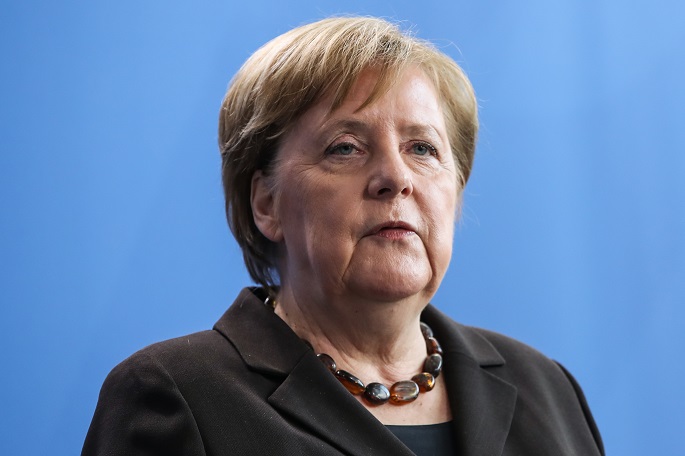Germany takes over EU presidency in pandemic-hit difficult time
Published : 01 Jul 2020, 23:19
Germany took over the presidency of the Council of the European Union (EU) from Croatia for the next six months in a "difficult time" determined by COVID-19, said German Chancellor Angela Merkel in a speech to the Bundestag (parliament) in Berlin on Wednesday, reported Xinhua.
"Of course, our presidency will be marked by the coronavirus pandemic, the efforts to contain it and to deal with its consequences," said Merkel, stressing that the European Council had agreed that "special solutions are needed."
The COVID-19 pandemic "affects us all," said Merkel when presenting the program for Germany's EU presidency in June.
Merkel warned that the positions of the member states of the EU were still "widely divergent." Besides the COVID-19 crisis, the EU Council is looking at a number of serious challenges including Brexit, immigration as well as climate protection.
In her speech, Merkel stressed that there were other issues besides the coronavirus crisis. "Over the next six months, we not only want to press ahead with crisis management, but also work intensively on how we can shape the key issues of climate protection, digital sovereignty and Europe's role in the world in the future."
Already in May, the European Commission has proposed a 750-billion-euro (844 billion U.S. dollars) aid package for Europe's economic recovery after the coronavirus crisis. In this "decisive moment," investments must be made "in a way that will benefit the next generation tomorrow," said President of the European Commission Ursula von der Leyen.
Merkel said that economic aid had to secure young people's opportunities and promised to campaign for every young person to have the opportunity to find work. "It is particularly important to me that the economic recovery benefits everyone and that we not only secure employment and business, but also and especially strengthen social cohesion in Europe."
The Federation of German Industries (BDI) warned on Wednesday that demands by many member states were so high that Germany could "hardly do them justice." The next six months could become a "negotiation and voting nightmare in the face of unrealistic expectations," said BDI President Dieter Kempf.
With regard to the future relationships between the EU and the United Kingdom (UK), Merkel noted that progress in the negotiations was "very limited, to put it mildly."
A recent survey conducted jointly by BDI and Deloitte showed that almost one in three German companies expected the UK to leave the EU without a negotiated deal.
"We have agreed with Great Britain to speed up the negotiations now in order to reach an agreement in autumn," Merkel said. She stressed to "continue to fight for a good solution" but advised to take precautions in the EU and also in Germany in case an agreement was not reached.
With the Brexit deadline getting closer and the international cry for financial aid getting louder as Europe's economies struggle with the effects of COVID-19, Merkel emphasized that "only with the support of the national parliaments of all member states will we be able to meet this major challenges."


